Exercise & Nutrients for Bone Health

I was only in my 30s when I learned I had osteopenia. The diagnosis came as quite a shock. I had no symptoms, and I took great care of myself. Also, I was “too young”—after all, I thought, weak bones were something you heard about when older folks fell and broke a hip.
That day, I learned the real truth: Bone health begins to deteriorate decades before those catastrophic falls. Bone mass generally peaks between the ages of 20 and 30. After this point, unfortunately, a person’s opportunity to build up strong bones has pretty much passed. Bone cell growth also slows around this time. Visualize bone mass as Swiss cheese, with tiny holes at infancy that gradually grow larger with age.
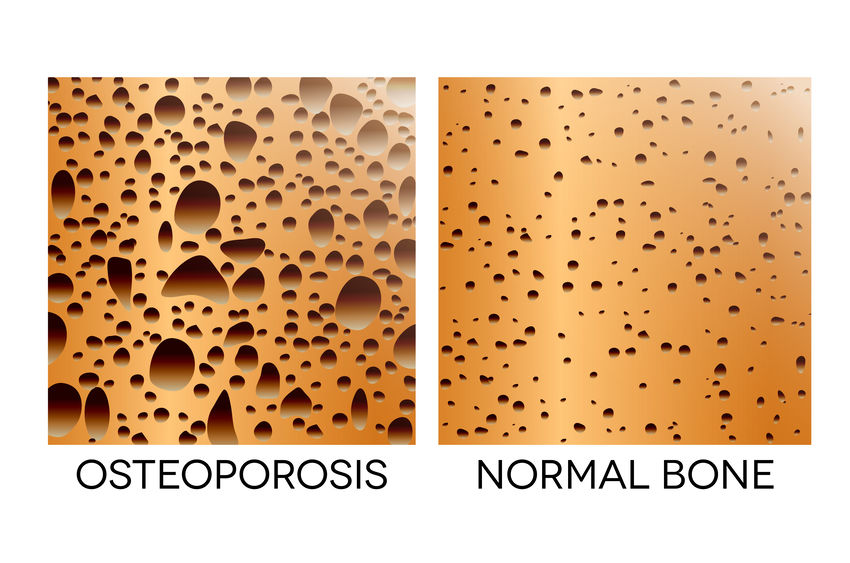
An increased risk for osteopenia and osteoporosis is a known family history factor. In my case, the trait is inherited from my mother, who, I’m grateful to say, is still otherwise wonderfully vital at 99 years old. In addition to genes, the factors that could put you at increased risk include being…
- female
- over 50—or younger but menopausal
- prone to hormonal imbalances
- white or Asian
- thin
Clearly, osteopenia is a frightening reality for a great many people. In addition, lifestyle plays a large role in bone health. If you smoke, are inactive, use steroids, have poor general nutrition, or suffer from untreated conditions such as low stomach acid, emotional stress, or anorexia, your risk is even higher.
And this is where you have the power to change your bone health story! With smart choices, you CAN minimize your risk. Your bone-health goal after age 30: Vigilantly protect the bone mass you have, to prevent further thinning and weakening.
Step 1: Find out the facts about your bone health.
That’s easy: Just ask your doctor. A bone density scan is a painless test that reveals volumes about the current state of your bones. A second test to request—regardless of your age, gender, or any other factor—is a vitamin D check. Vitamin D deficiency is very common and is a huge factor in bone health. All this test requires is a small blood sample.
Based on these test results, your doctor may make recommendations for supplements or even discuss with you the benefits and risks of prescription medication. This is an important conversation to have with your physician, and one you should be prepared to revisit regularly if your results are less than optimal. Today’s medications are powerful against bone disease, but they also come with significant side effects. If appropriate, supplementation may be an effective but gentler way of preventing bone deterioration.
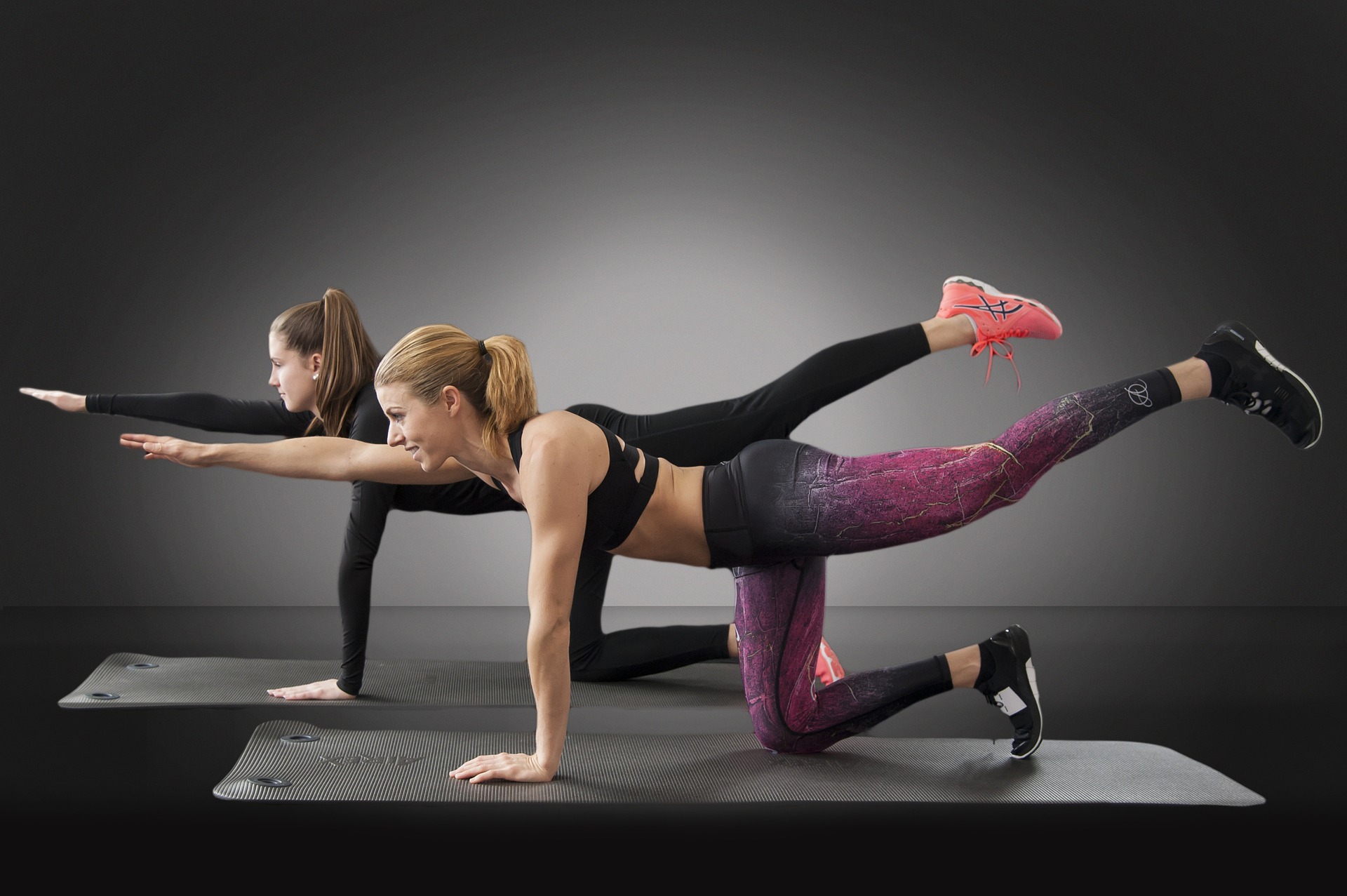
Step 2: Get active!
You know that sedentary living is detrimental to every part of your wellness. And for the health of your bones particularly, be sure your exercise habits include weight-bearing movement.
Weight-lifting is a great option, but you also carry your own weight (or more) with work-outs like jogging, walking, or hiking. Movements that simulate additional weight count, too. Think stair-climbing, using a rebounder or vibration platform, jumping rope, or dancing. Great fitness can be fun!
Step 3: “Bone up” on important nutrients.
Four key minerals and vitamins play a vital role in building and maintaining a strong skeletal structure. Make sure these are a big part of your diet as often as possible, and work with your health care professional to add supplements where needed.
Calcium
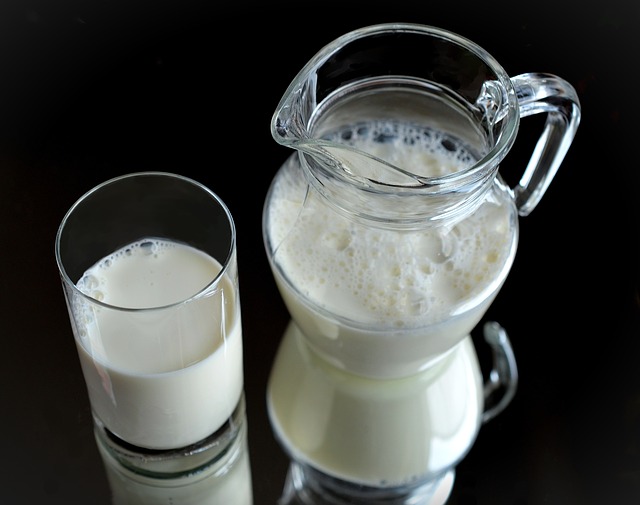
What it does: You know that your teeth and bones need calcium to remain strong, but many other body systems, from blood and enzyme balance to musculature and nerves, use this mineral, too. That means the supply available to your bones is always in need of replenishment—even more so as you age.
Food sources of calcium include
- green leafy vegetables, especially spinach and kale
- kefir
- shrimp and bone-in sardines
- kidney beans
- almonds
How much you need: about 1000 mg daily
Magnesium
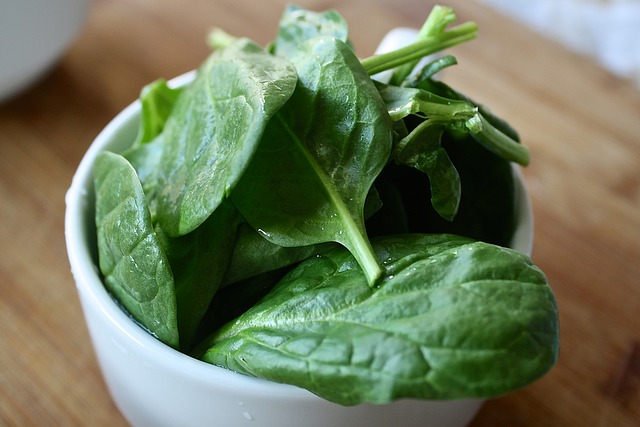
What it does: Your body can’t process calcium properly without the help of magnesium—and that’s just one of the many roles this mineral plays. (Want more? Read about magnesium here: http://www.robertamittman.com/wellbeing/this-miracle-mineral-gets-no-respect/ )
Food sources of magnesium include
- green leafy vegetables and legumes. You read that right, these foods are a calcium-magnesium two-fer!
- halibut
- pumpkin seeds
- avocados and sweet potatoes
- basil
- (in moderation, of course!) dark chocolate
How much you need: about 500 mg daily
Vitamin D
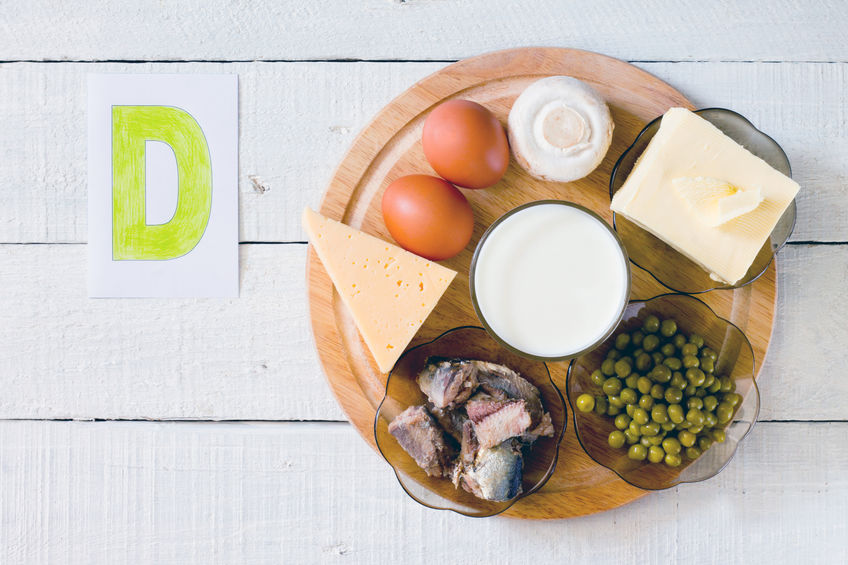
What it does: This bone, nervous system, cardiovascular, and immune health compound is produced by your own body when you’re exposed to ultraviolet light such as the sun. But making enough is a challenge for most of us since sun exposure comes with risks.
Food sources of naturally occurring vitamin D are limited, too: Fatty fish and eggs are about it. In addition, breakfast cereals, orange juice, and dairy products are often fortified with vitamin D.
How much you need: Most of us are deficient in vitamin D. Recommended dosage is usually between 1000 and 5000 IU daily—your doctor can advise what’s right for you.
Vitamin K2
What it does: This so-called “forgotten vitamin” is critical to bone health, aiding the building of bone and the prevention of bone loss. Gut imbalances and certain prescription drugs can result in vitamin K2 deficiencies.
Food sources include
- green leafy vegetables (That makes three of the four prime bone nutrients in a single vegetable group. Leafy greens qualify as powerhouse foods in my book!)
- cruciferous vegetables like broccoli, cabbage, and cauliflower
- lentils
- peas
- asparagus
How much you need: For women, the daily goal is 65 mg. For men, it’s 80 mg.
Those are “the big 4” bone nutrients. For BONE-us points, add foods rich in zinc, vitamin C, and potassium. All three have specific roles in bone-building and the prevention of bone disorder.
Step 4: Limit dietary sins, and alkalize.
Your bones suffer if you make a habit of consuming an excess of sugar, alcohol, or caffeine. All three substances stimulate acids that actually remove calcium from your bones. Want a smart alternative to that super-sized, over-sweetened coffee bomb in the morning? Try some apple cider vinegar or lemon juice mixed into a tall glass of warm water. It’s hydrating, energizing, and knocks those damaging digestive acids back to normal levels.
So what’s the latest in YOUR osteopenia story, Roberta?
I am grateful to report that things are going well—but I remain ever aware of my elevated risk. I care for my bones through daily exercise like weights, cardio, and Pilates, and I enjoy a diet packed full of bone-healthy foods including those above. Along with daily supplementation, these practices have kept me stable and strong despite my diagnosis.
Good bone health is so much more than avoiding falls in our golden years. Treating your bones with care will also gain you increased overall wellness, confidence, and vibrant living, now and going forward. Contact me—I’m here to guide you toward that positive path!
A dedicated alternative health care practitioner, health and wellness coach, speaker, author, and licensed acupuncturist,
Roberta Mittman is the founder of the Park Avenue Center for Wellbeing. She serves the New York City area as well as those from around the world who connect with her for guidance to reach healthy, happy, and richly rewarding lives. Roberta specializes in guiding women over 40 to quickly and elegantly feel and look trim and vital so they have more time and energy to spend finding happiness, love, and abundance. Her magic: the perfect, holistic blend of East and West. A self-proclaimed chocolate enthusiast, she’s also the author of Ultimate Wellness: The 3 Mental Shifts You Can Use to Change the Course of Your Health Right Now.
Visit her web site: www.robertamittman.com/


I hope the food above is safe for diabetics, it looks fun to eat healthy food